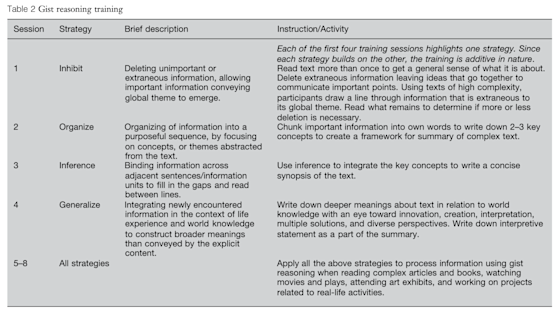Overview
Cognitive impairment can threaten independence and quality of life as we age. Gist reasoning – or the ability to synthesize complex information into abstract, global meaning – relies on higher-order cognitive processes such as selective attention, inhibition and cognitive flexibility. Strengthening these skills presents a unique opportunity to maximize cognitive health later in life.This non-randomized pilot study, twenty-six cognitively normal senior participants aged 64-85 completed neurocognitive testing pre- and post-training. The 4-week small-group gist reasoning training focused on applying four actionable cognitive strategies to day-to-day life.After training, participants showed significant gains in abstraction ability, with additional improvements in untrained measures of executive function, including concept abstraction, cognitive switching and verbal fluency. Notably, those with lower baseline abstraction skills experienced the greatest gains in gist reasoning.These findings highlight the potential of strategy-based cognitive training to strengthen executive functioning skills, with promising implications for promoting cognitive resilience and lengthening the brain health span of our aging population.
Table 2 displays the cognitive strategies that were addressed in each training session for the participants.






